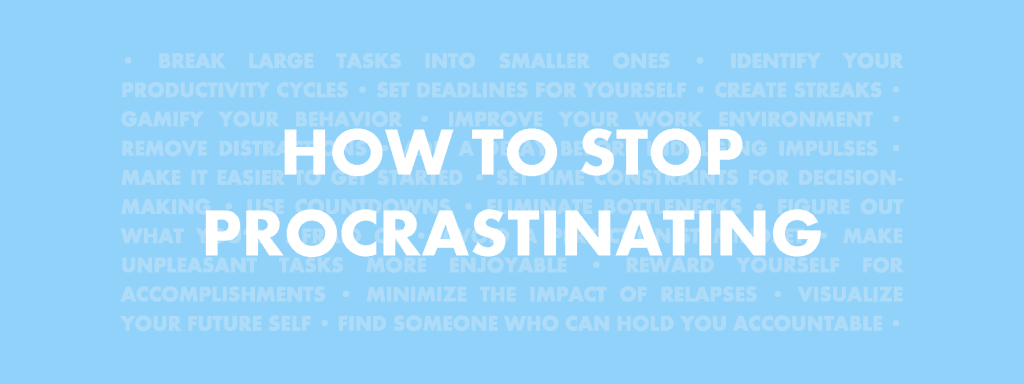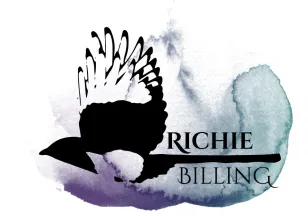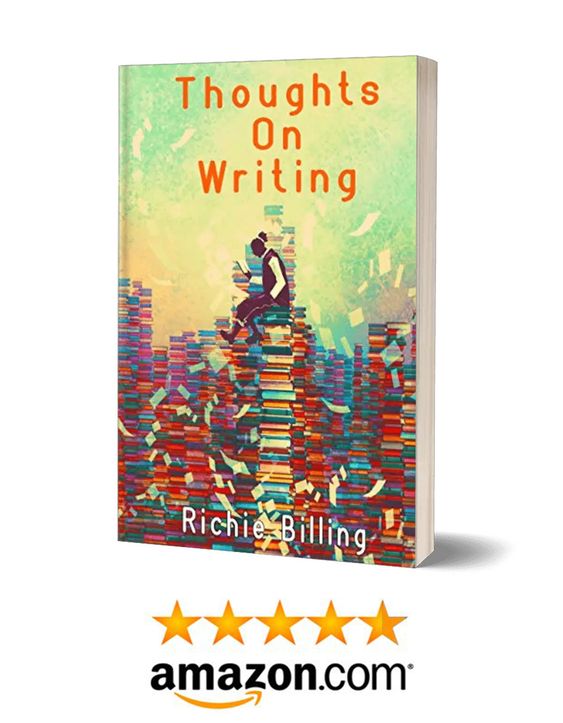Welcome to my guide exploring 11 different ways to stop procrastinating. Countless hours lost to daydreaming, scrolling through mundanity on the web, reading news articles on subjects I’ve never shown an interest in. Sometimes I sit there ready to go and a thought pops into my mind. I’ve not cleaned the fish tanks in a few weeks. Another forty minutes go by. Think of all the words that could have been written?
“Until you value yourself, you will not value your time. Until you value your time, you will not do anything with it.” M. Scott Peck
What Is Procrastination?
Procrastination is the process of delaying or postponing an action. So in a writing sense, it’s a means of putting off actually writing anything down.
You can look at procrastination as having two constituent parts: first, mental attitude, and second, physical distractions. Attitude is perhaps the most important, distractions being the enabler. So let’s first look at what influences our moments of procrastination. We’ll look at both below.

The Different Ways To Stop Procrastinating
Procrastination is so widely discussed in the writing community I know it’s not just me that suffers from this curse. It’s in the most frustrating hours that we strive to understand the meaning of things. What is procrastination? Why do we insist on delaying our progression?
Let’s take a look at the two elements of procrastination before turning to look at some of the best ways to stop procrastinating.
Fear
I think the biggest reason is fear. If we do not try we cannot fail. And in delaying the act of writing we can forever in our minds picture ourselves as successful. Our fantastical dreams live on. We have not tried so we have not failed.
But in not trying we fail. And this is the flaw in the rationale. For years whenever things did not go my way, I recited the saying: “Good things come to those who wait.” Comforting, but nonsense. You must act, you must be proactive. Make opportunities for yourself. Be bold and unafraid. Stake your claim, ring fence your piece of the world. And let nobody or nothing halt you in your path.
Well, that’s the theory. Reality, as we know, is very different. So what can do to rid ourselves of the curse?
“It was my fear of failure that first kept me from attempting the masterwork. Now, I’m beginning what I could have started ten years ago. But I’m happy at least that I didn’t wait twenty years.” Paulo Coelho
Turn fear on its head. The very thing we fight every day is, in fact, a powerful source of motivation, maybe the most influential source of all. The greatest motivator for me is the thought of dying and not having finished my scribblings.
“Only put off until tomorrow what you are willing to die having left undone.” Pablo Picasso
Forget instant perfection
“A primary reason people don’t do new things is because they want to do them perfectly – first time. It’s completely irrational, impractical, not workable – and yet, it’s how most people run their lives.” Peter McWilliams
Wouldn’t it be great if we could write a Hugo award-winning novel first time? No hours spent slaving away over characterisation, plot holes, syntax, adjectives … Maybe in another universe, but not ours.
The sooner it’s accepted that what tends to get written first time around isn’t going to be special, the sooner those words are likely to start flowing. Editing is the most significant part of the process. The prospect seems daunting, but the more you learn about the craft, the easier editing becomes, and you may even find yourself enjoying it. So don’t beat yourself up while you’re writing your first draft. There’s ample opportunity to put things right down the line.
Let’s look at some of the best ways to stop procrastinating.
Approach writing as if it were a game
My old lawyer job was pretty taxing and dull, so to make things a bit more enjoyable I began to approach it like a game. Tasks and deadlines became challenges instead of problems. Not the kind of game I’d choose to play, but choice wasn’t a luxury I enjoyed.
You can apply this to writing too. The problems with your manuscript aren’t problems but rather challenges to overcome. You can even approach it like an actual game. Write so many words and you get to level 2, 3, 4, and so on. Or look at each word, sentence or paragraph you write as a way of gaining experience points (or XP). It may not work for all of you, but for some, it may be of use.
Reward yourself
In other words, Pavlovian Conditioning—conditioning yourself to write. Think of small rewards you can give yourself. A snack, cup of tea, smoke. Or if you’ve achieved a lot, a more substantial reward, like a takeaway, a few hours on the PS4, or watching a bit of TV. Anything you enjoy.
In the toughest of times when concentration is waning, you keep on rubbing your eyes, staring anywhere but the page or screen, your reward is there to keep you focused and driven. And when it comes to the reward you can enjoy it even more knowing you’ve achieved your goals.
Tackle the toughest challenge first
“Do the hard jobs first. The easy jobs will take care of themselves.” Dale Carnegie
You awake, brush your teeth, shower, eat a banana, and now you’re ready for the world. Resist the temptation to pick those easier jobs first. As Mr Carnegie says, they’ll take care of themselves in time. Roll up your sleeves and dive head first into that bastard bit of editing that’s been breathing down your neck.
They say you’re at your sharpest when you first awake. Maybe so, and if that applies to you, take advantage. The later in the day you leave a big job the more likely you are to postpone it. “No point getting started on that now. I’ll do it tomorrow.” Do it now!
Work in bursts
Getting going is often the hardest part, as users of Viagra can attest to. So take the pressure off your shoulders by making the challenge smaller. Twenty minutes is no big deal. You write a few paragraphs and bang, twenty minutes have gone. But now you’ve found your flow, you don’t want to stop. And next thing you know you’ve clocked an hour and six hundred words. You’ve just tricked yourself into productivity.
So those are a few ways to change your thinking. Now it’s time to tackle the enablers.
Ditch the smartphones and devices
Most of us have a smartphone, and damn can they be distracting. It’s nice to feel connected with our friends, family, and the wider world, but sometimes you need to step away for a few hours, as alien as it feels to disconnect. Leave devices in another room. Lock them in a safe. Get someone in your house to hide them. If you’re expecting a call use an old brick of a phone. All you can do on one of them is play ‘Snake’.
Establish a writing area
Find your favourite corner of the house, or wherever you like to write, piss all over it and tell everyone else to stay the fuck away. This is your territory now.
Try and free it of distractions. Windows can be good and bad. I love sitting by a window. It can be a great source of inspiration, but also a powerful source of distraction too.
Consider locating your writing space away from where you relax. This is tricky for me because my house is small, which is probably why I prefer writing outside. I’m writing this outside now. It’s important to establish this distinction. Writing in bed, for instance, is not a good idea, though bloody comfortable. You associate your relaxing environment with distracting things. Some fellow writers I’ve spoken to go to cafes, preferably ones without Wi-Fi, which I think is a great idea.
Wind in the web browsing
I’m a sucker for a fail video and browsing through Amazon deals with no intention of buying anything.
Yes, the internet is necessary for research or to look up a word, but there are dictionaries. If you want to keep that Wi-Fi on but still aren’t trusting, you can have a look at some of these programs or add-ons for your web browsers:
- Freedom. This little app is designed to manage your distractions. You can block websites for specific periods of time. You do however have to pay for it.
- Self-Control. Mac only. Like Freedom, it allows you to block websites during specified times. Free.
- StayFocused. Add on for Google Chrome. Much the same as the above. Free.
- LeechBlock. Add on for Mozilla Firefox. As above. Free.
Try listening to music without lyrics
This may work for some of you, for others not at all. Lyrics are meant to be distracting. I tried this out and found I was a little more focused during instrumental songs. I didn’t have any opportunity to bellow out a line, disrupting my flow. I love rock and psych, and classical. Crazy long Allman Brothers jams do it for me, and of course The Lord of the Rings Soundtrack.
Avoid multitasking
Some people pride themselves on their ability to multitask. If you’re good at it, nice one. Whenever I try it I can handle it for a while but soon I grow stressed and lose focus on both tasks, meaning nothing gets done. Some of you may be the same. It can be far easier to focus on one task, and in the long run, more efficient.
***
So there are a few weapons to add to your arsenal the next time you go duelling with the devil that is procrastination. I’ll leave you with a few motivational quotes, starting with my favourite:
“Words are wind,” A Song of Ice and Fire, George R.R. Martin.
“If and When were planted, and Nothing grew.” Proverb
“Somebody should tell us, right at the start of our lives, that we are dying. Then we might live life to the limit, every minute of every day. Do it! I say. Whatever you want to do, do it now! There are only so many tomorrows.” Michael Landon
“Life, as it is called, is for most of us one long postponement.” Henry Miller
More Guides On Writing
Below, I’ve included some other guides which may give you some extra ideas on ways to stop procrastinating.
4 Easy Ways To Begin Writing A Novel – my detailed guide looking at ways you can stop procrastinating and start writing that novel at last.
Why You Should Never Give Up Writing – a motivational post on why you should never give up writing.
Thanks for checking out this guide on the different ways to stop procrastinating.
For more posts like this, why not join my writing community? Everyone who does receives a free ebook on the craft, lists of publishers of short and long fiction, and a list of over a hundred book reviewers. All you have to do is fill out the form below!
- 5 Tips to Help Your Child Learn and Succeed at Primary School - February 26, 2024
- The Advantages Of Using An AI Essay Typer Alternative - February 14, 2024
- Advice On Getting Help With Your Homework - January 26, 2024




Pingback: A few tips to help you own NaNoWriMo – Richie Billing
Pingback: Music and Writing – Richie Billing
Pingback: 7 tips to improve as a writer – Richie Billing
Pingback: Music and Writing - Richie Billing
Pingback: Crushing NaNoWriMo - Richie Billing
Pingback: How To Improve As A Writer - Richie Billing